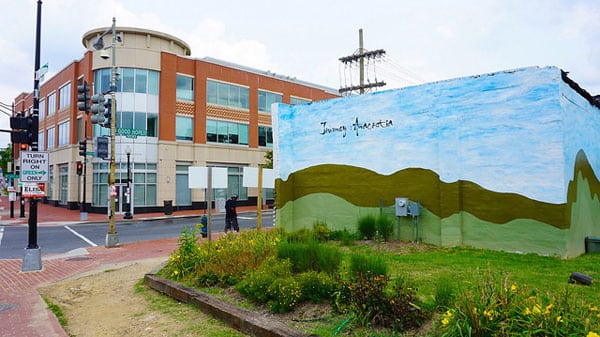
June 15, 2018; DCist and Washington Post
Is it possible for developers and city leaders to conspire to move a population—in this case, African Americans—out of an area of a city to promote the gentrification of that area? DC lawyer Aristotle Theresa thinks the answer is “yes,” and he has filed a billion-dollar lawsuit naming the city’s current and past mayors as defendants, along with the Office of Planning, the Zoning Commission, and the Deputy Mayor for Economic Development. The plaintiffs include three Black women living in Washington and CARE, a small local community group that is estimated to have at least 20 members.
Theresa claims that the city’s policies specifically discriminate against the District’s longest-standing Black residents in order to make room for largely white millennial renters, which he calls “creative” workers after the theories of Richard Florida:
“The city is intentionally trying to lighten black neighborhoods, and the way they have primarily been doing it is through construction of high density, luxury buildings, that primarily only offer studios and one bedrooms,” the suit reads.
Many of DC’s policies—like the policies of large cities across the country in the mid-aughts—were based on the work of Richard Florida, an influential urban theorist who wrote the seminal text on the “creative class.” His 2002 book The Rise of the Creative Class describes a specific kind of worker, often young and working in fields like technology, science, art and journalism. According to his theory, the key to a successful city economy lies in the hands of these workers, who have very particular ideas about where and how they want to live.
“Creatives prefer indigenous street level culture—a teeming blend of cafes and sidewalk musicians and small galleries and bistros, where it is hard to draw the line between performers and spectators,” Florida once wrote.
The lawsuit contends that the city is systematically pushing its long-term Black population out of areas that can be redeveloped into high-rise one-bedroom and studio apartments that are ideal for the white millennial “creatives” that flock to DC, many on a short-term basis.
Sign up for our free newsletters
Subscribe to NPQ's newsletters to have our top stories delivered directly to your inbox.
By signing up, you agree to our privacy policy and terms of use, and to receive messages from NPQ and our partners.
Though the suit claims intentional discrimination, this may be hard to prove. If higher rents or lack of adequate space is what’s driving families out, there could be some basis, but not if landlords say they are willing to accept housing vouchers. Theresa points to statistics from DC neighborhoods as proof of the preferential motives of the government.
As evidence, Theresa cites census statistics for several gentrifying neighborhoods, including Bloomingdale, which adjoins North Capitol Street, where the overall population grew by 1,000 from 2009 to 2016 but the number of African Americans fell. The population along the U Street corridor grew from 6,700 to 9,400 over a decade, as the number of whites increased by 1,300 and the African American population declined by nearly 400, the lawsuit claims.
Theresa also cites the neighborhood around the Navy Yard, which has exploded with growth over the past decade. As its population soared from 625 to 4,664, the percentage of whites—once 22 percent—rose to 66 percent. At the same time, the percentage of African Americans fell from 73 percent to 22 percent.
Perhaps, though, the city’s policies are having negative impacts on specific populations without specific intent to discriminate. Anthony Cook, a professor at Georgetown Law, says that even in the absence of intent, Theresa and his clients might be able to prevail by making an argument about “disparate impact—that is, the idea that city policies have had negative outcomes for certain populations, even if the city did not directly intend to discriminate.”
“You can sustain a claim with regard to disparate impact under the law. It’s not just about whether the city intends to discriminate,” Cook says.
As the city of Washington, DC seeks to build a strong, young workforce that will renew itself over time, having housing that fits this group’s “creative” lifestyle becomes a means of attracting and keeping these kinds of workers. With this as their focus, the city, like other urban cities, has moved to build residential areas that attract this population. But Theresa says this is being done at the expense of a specific group of people—and the developers and the city are not innocent in their intent. What do you say?—Carole Levine













